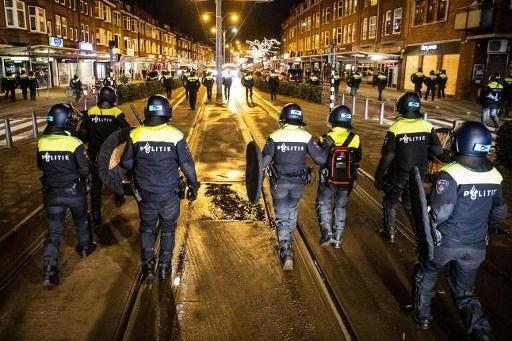A total of 131 suspects were arrested by Dutch police on Tuesday evening during protests against measures taken to curb the spread of coronavirus in the Netherlands.
They were protesting the curfew - between 9:00 PM and 4:30 AM - imposed on Saturday for the first time since World War II.
Of the 131 arrests, 81 were carried out in Rotterdam. The vast majority of the suspects were arrested for violence in the public space and rebellion, the police said, adding that Tuesday evening had been calmer than the previous days.
Unrest also erupted in Hilversum and Amsterdam. Police have been tracking people suspected of involvement in the riots throughout the country in recent days.
Most of the suspects arrested on Tuesday were under 25, which prompted police and prosecutors to call on parents to make sure their children were at home during the curfew.
Related News
- Belgium's Dutch border braces for riots against Covid rules
- Coronavirus: The Netherlands under curfew for the first time since WWII
- Nearly 200 arrested in the Netherlands after third night of riots
King Willem-Alexander and Queen Máxima thanked "all the police officers, emergency workers and employees of municipalities who work to ensure the safety of us all" on Wednesday, adding that "you are doing a fantastic job under difficult circumstances!"
The royal couple also praised the surge of solidarity that followed the riots, especially towards the entrepreneurs who suffered damages due to the riots.
The House is due to discuss the violence of recent days on Wednesday. Resigning Justice Minister Ferd Grapperhaus said that posting soldiers in the streets to enforce the curfew was not on the agenda for the moment. Right-wing Geert Wilders had asked for the army to intervene.
The Netherlands counted 35.635 new cases of coronavirus between 20 and 26 January, and 512 people died during that period, according to the latest data provided by the National Institute for Public Health and the Environment (RIVM).
Jason Spinks
The Brussels Times

